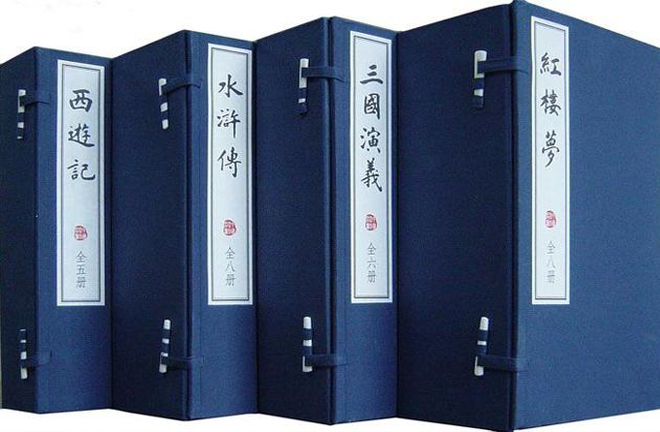Research of ancient Chinese literature continues to broaden its perspectives

The study of ancient Chinese literature has a trendency to return to the classics, such as the four major classical novels in ancient China. Photo: FILE
Since the founding of the People’s Republic of China 70 years ago, the study of ancient Chinese literature has progressed remarkably.
Liu Yuejin, director of the Institute of Literature at the Chinese Academy of Social Sciences, said that over the past 40 years of reform and opening up, the study of ancient Chinese literature has developed a trendency to return to the classics, to conduct theoretical research, to construct concepts of Chinese literature, and to arrange and classify.
Zeng Daxing, a professor at the College of Humanities of Guangzhou University, said that ancient Chinese literature has been studied from a purely temporal perspective and from a temporospatial perspective. The focus of attention here is not only on the characteristics of the times but also to regional features.
Liao Qun, a professor at the School of Literature at Shandong University, said that since the reform and opening up, the perspective of research on ancient Chinese literature has become more diverse after the introduction of various Western literary theories. In addition to research methods of textology and the dual evidence method (verifying historical records with unearthed relics), research methods of cultural anthropology, communication studies, reception aesthetics and narratology are also widely used in the study of ancient Chinese literature.
The government has strongly supported the study of ancient Chinese literature by establishing various projects within the National Social Science Fund of China. This is a good opportunity for the development of ancient Chinese literature research, Liao added.
Xu Jianwei, deputy dean of the School of Liberal Arts at Renmin University of China, said that the study of ancient Chinese literature really had its birth in the early 20th century with its basic research methods introduced originally from Britain and Japan. These methods that are used to divide literary works into poetry, prose, novels and drama also came from the West. Poetry, prose, novels and traditional Chinese opera can all be considered Chinese concepts with meanings specific to China and its culture. These concepts may not be totally identical to Western concepts.
Since the founding of the People’s Republic of China, the study of ancient Chinese literature has experienced three great favorable periods for development. Zeng said that the first period was the popularization of the study and knowledge of ancient Chinese literature after the founding of new China. Selected Poems of the Book of Songs, Selected Yuefu Poems and Selected Song Poems were all compiled by an older generation of scholars represented by Qian Zhongshu. The second was that the reform and opening up process broadened research perspectives and created a favorable academic environment for the study of ancient Chinese literature. The third was the great importance that the 18th CPC National Congress in 2012 attached to the development of excellent traditional culture and the study of classical literature.
Xu said that we can learn from the frontier research of the global humanities to broaden perspectives and methods in the study of ancient Chinese literature. Ancient Chinese literature should be studied within a larger global context of ancient human civilization, generating fresh contemporary value.
The study of ancient Chinese literature should focus on the relationship of ancient literature with folk literature and oral tradition. Liu Zongdi, a professor at the School of Humanities at Beijing Language and Culture University, said that ethnic groups throughout human history experienced long eras of colloquial communication before learning to write. Stories and ideas during these times were only passed on orally. The earliest poetry collection in China is The Book of Songs, which is based on the re-creation of oral traditions. Even after the birth of written language, folk literature and oral traditions were still an important source of literary creation. Almost every reform in a literary genre in the history of ancient Chinese literature was inseparable from the influence of folk literature. Each new literary genre initially emerged from folk literature. A better knowledge of folk literature and oral traditions not only is conducive to the development of folk literature, but broadens the academic horizons of ancient literature research.
edited by YANG LANLAN

 PRINT
PRINT CLOSE
CLOSE